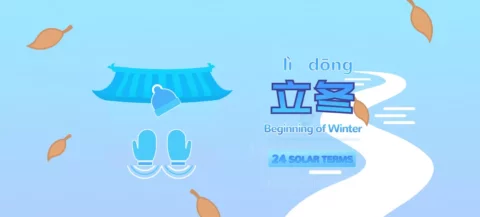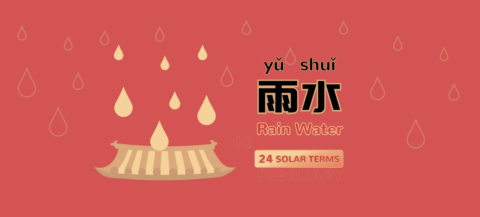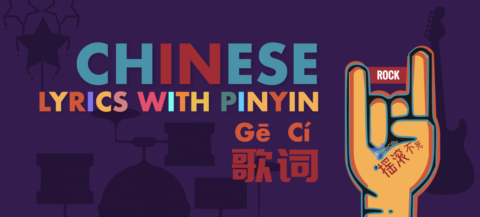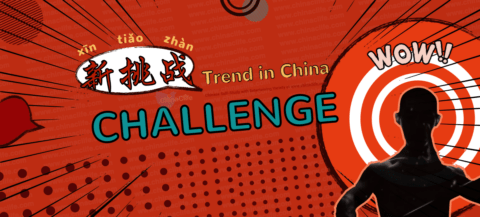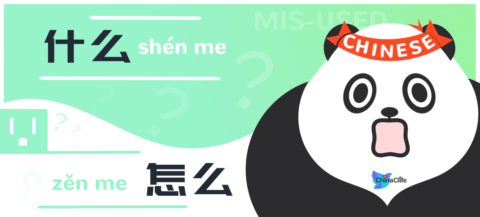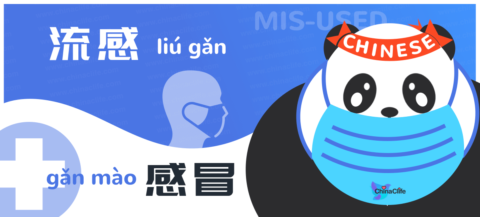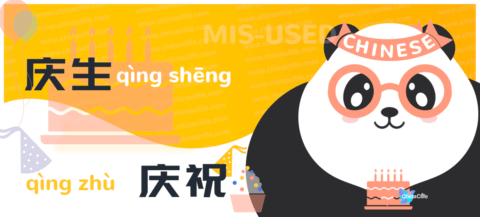Yu Shui: The Second of Twenty-Four Solar Terms Indicates The Rain Water in February
二月里的第二个节气:雨水
In China, the second half of February always comes the second Solar Term of this month called "Yu Shui". The story is going to introduce "Yu Shui", the 2nd Twenty-four Solar term, also known as "the Rain Water" in English.
Target Story Words
English Words:
Chinese Pinyin:
Standard Chinese:
Similar Chinese Words:
春雨 chūn yǔ The Chinese word describes the rain falling in Spring.
Related Chinese Words:
二月 èr yù means February in Chinese.
春天 chūn tiān means the spring season in Chinese.
二十四节气 èr shí sì jié qì The Twenty-four Solar Terms in Chinese.
What is "Yu Shui"?
雨水指什么?
The word "Yu Shui" comes from the pinyin form (yǔ shuǐ) of a Chinese term 雨水, also known as the Rain Water in English.
Yu Shui,取自中国的一个节气词汇“雨水”的汉语拼音,英文里也称作“the Rain Water”。
Since the invention of the Twenty-four Solar Terms originated from the ancient Chinese's observations and research on the periodic movement of the sun and stars, the date and time for each solar term could be determined in the Gregorian calendar according to the sun's position on the ecliptic.
二十四节气的出现是源自古代中国人对太阳以及斗转星移的运行规律的观测和总结,因此,每个节气的日期和时间都能根据太阳在黄道运行的位置在现行公历中确定下来。
Each time, the sun moves to the 330 degrees (330°) of the ecliptic longitude, the time of the day was defined as the start time and date of the Water Rain 雨水 (yǔ shuǐ) and marked in the Chinese calendar of the year.
每当太阳运行至位于黄经 330 度时,这一天的某个具体时刻则被定为节气“雨水”,在中国农历中这一天也会标记为“雨水”日。
When is "Yu Shui" in China?
雨水的日期?
In the Gregorian calendar, the Chinese Solar Term 雨水, the Rain Water usually takes place in the late February, such as February 18, 19, or 20 depending on the movement of the sun and the traditional Chinese calendar, with an 1-or-2-day discrepancy.
在公历中,节气“雨水”对应的日期通常落在每年 2 月下旬的 18-20 日之间,误差不会超过 1~2 天。
To be specific, the date Feb 19th, 2022 at Beijing time 00:43 AM (UTC+8) comes the solar term of YuShui of the year, which will end on March 5th, 2022 at 22:43 PM (UTC+8) when the next solar term arrives.
2022年的雨水节气始于北京时间 2 月 19 日凌晨 0 时 43 分,止于 3 月 5 日晚间 22 时 43 分,即下一个节气来临之时。
Both in Feb: "Yu Shui" v.s. "Li Chun"
“雨水”与“立春”
In modern China, the term 雨水 (yǔ shuǐ) is usually considered as the second of Twenty-four Solar Terms of the year, also one of the twelve minor Solar terms closely following the first term "LiChun (the Beginning of Spring)" 立春 (lì chūn) in the Chinese calendar.
在现代,雨水节气通常被视为一年当中的第二个节气,同时也是紧跟在二十四节气之首立春后面的一个中气(二十节气是由 12 个节气和 12 个中气共同构成的)。
Unlike the Solar Term LiChun, which marks the season shifting from Winter to Spring, the term "YuShui" was set to indicate the rain falling in the Spring season.
与排在首位的节气立春不同的是,作为二十四节气第二的雨水,并非是表示由冬向春的季节更替,而是一个反映春季中降水现象的节气名词。
What's more, YuShui is not the only solar term to forecast the rain falling among the twenty-four ones. There are also other six solar terms that have implied the different forms of precipitation in four seasons. You can easily grasp such implications from their Chinese names, e.g.:
谷雨 (gǔ yǔ) Known as Grain Rain in April,
白露 (bái lù) as the White Dew in September,
寒露 (hán lù) as the Cold Dew in October,
霜降 (shuāng jiàng) as the Frost's Decent in October,
小雪 (xiǎo xuě) as the Minor Snow or Lesser Snow in November, and
大雪 (dà xuě) as the Greater or Major Snow in December.
More details could be found in its story of each solar term in the near future.
值得一提的是,在二十四节气中,还有其他六个节气与雨水一样,也都是反映降水现象的节气,分别是谷雨、白露、寒露、霜降、小雪和大雪。连同雨水节气一起,均以空气中水分在不同季节下呈现的状态特征来命名。
To know more Solar Terms into Chinese and traditional Chinese culture, or looking for starting Chinese learning entertainingly, keep an eye on our updating at www.chinaclife.com.
欲获取更多关于世界节日的中文表达,了解中国的传统节日和文化习俗,或趣学中文,记得随时关注我们的更新。
Enjoy!
Questions & Additional
Have you got any tips from this bilingual Chinese story above?
Do you have any other questions or suggestions?
You are free to write it down in the "Comments" section below or in our groups.
Any thought from you is appreciated, valuable, and might help the rest of the residents on the planet. 😀
Additionally...
Did You Start Learning Chinese with Pinyin?
Continue to read our User-friendly Chinese-Pinyin version of this story
(Unlocked for Free Logged-in and Premium residents only).
Hope it Helps! : )










